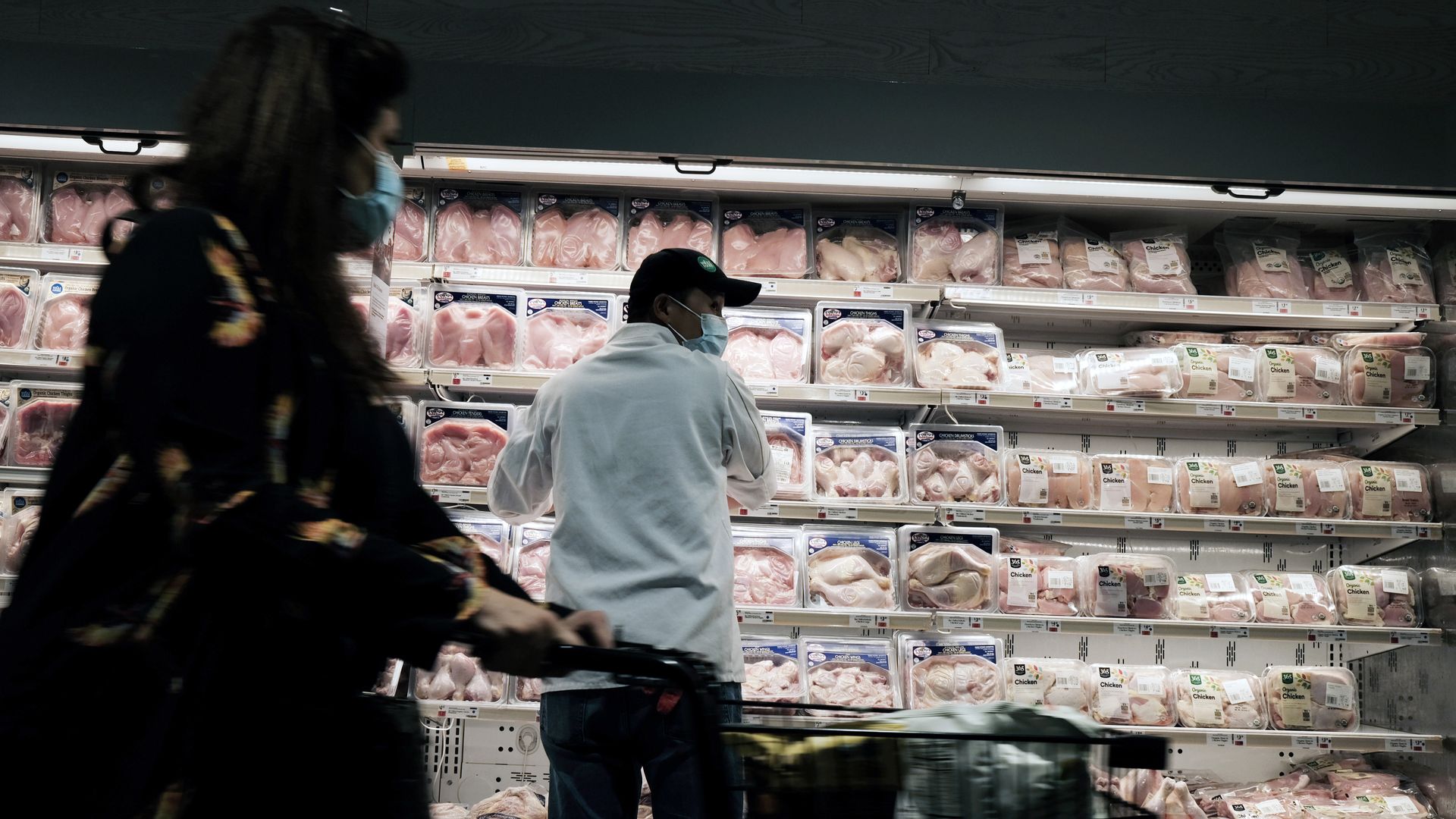
Food is displayed for sale in a market in Sept. 2021 in New York City. Photo: Spencer Platt/Getty Images
The temporary boost to the Supplemental Nutrition Assistance Program (SNAP) benefits put into place during the COVID-19 pandemic will end this week.
The big picture: The end of the emergency allotments aimed at combating food insecurity will impact more than 41 million Americans who received the increased benefit last year alone.
What they are: SNAP is a monthly benefit for eligible low-income people to purchase food.
- The emergency allotments added almost three years ago allowed SNAP households to get an additional $95 or more (depending on household size and income) in monthly benefits.
Why they’re expiring this week: The boost to SNAP benefits was a temporary strategy authorized by Congress to help low-income individuals and families deal with pandemic hardships.
- The 2023 Consolidated Appropriations Act passed by Congress ends emergency allotments after the February 2023 issuance, per the U.S. Department of Agriculture’s Food and Nutrition Service.
What it means: By March 2023, all households receiving SNAP benefits will return to getting pre-pandemic amounts — erasing the added supplement.
- That’s a decrease of anywhere from $95 to $250 per month for a given household.
- After the cuts, payments will go down to about $6.10 per person, per day, according to the Center on Budget and Policy Priorities. That’s around $2 a meal.
Meanwhile, households that receive both SNAP and Social Security benefits will see a decrease in their SNAP benefits due to a cost of living adjustment that increased Social Security benefits, according to the Food and Nutrition Service.
- The Social Security adjustment is still a net gain for SNAP recipients since the increased Social Security benefits are more than the decreased SNAP benefits.
- Still, some households will see a larger decrease in their SNAP benefits due to the end of emergency allotments happening at or around the same time.
Of note: Other SNAP waivers, such as the temporary student exemptions, are expected to remain in effect until the end of the federal public health emergency, which is expected in May.







